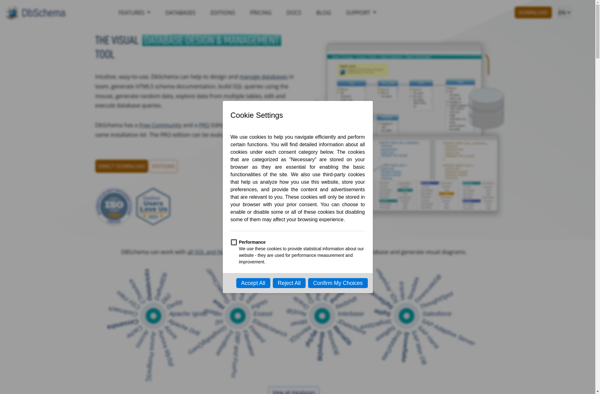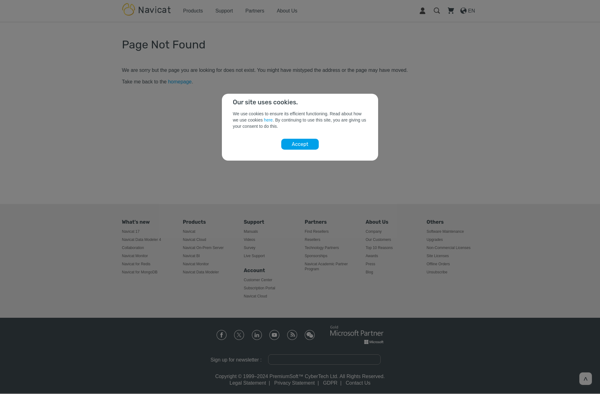NoSQL Booster
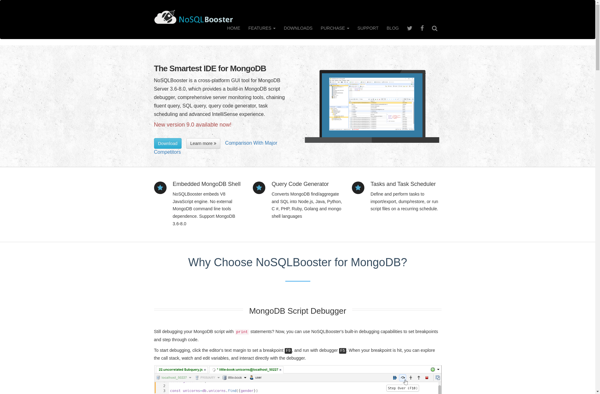
NoSQL Booster: MongoDB GUI and Admin Tool
NoSQL Booster is a MongoDB GUI and admin tool that allows you to easily manage MongoDB databases and collections. It provides features like document editing, index management, query building, and more.
What is NoSQL Booster?
NoSQL Booster is a feature-rich GUI and shell for MongoDB administration and development. It allows you to visually explore MongoDB databases and run ad hoc queries with an intuitive interface.
Key features of NoSQL Booster include:
- Intuitive MongoDB GUI for managing databases, collections, indexes, and more
- Shell for running MongoDB queries and commands
- GridFS support for storing and managing large files
- Visual aggregation builder for creating complex reporting pipelines
- MapReduce editor for developing and debugging MapReduce jobs
- MongoDB monitoring for tracking performance metrics
- Index advisor for optimizing query performance
- Schema analysis and query profiling capabilities
- Available as standalone, portable app or Eclipse plugin
NoSQL Booster simplifies many MongoDB administration tasks such as document editing, user management, replica set configuration and more. The shell provides auto-complete and syntax highlighting for quickly prototyping queries. The GUI makes it easy to understand schema and inter-document relationships.
NoSQL Booster supports all major operating systems including Windows, Mac OSX and Linux. It can be used for development, QA, staging and production environments to improve productivity when working with MongoDB.
NoSQL Booster Features
Features
- Document editing
- Index management
- Query building
- Monitoring
- Import/export
- Schema visualization
Pricing
- Free
- Subscription-Based
Pros
Cons
Official Links
Reviews & Ratings
Login to ReviewThe Best NoSQL Booster Alternatives
Top Development and Database Tools and other similar apps like NoSQL Booster
Here are some alternatives to NoSQL Booster:
Suggest an alternative ❐Studio 3T
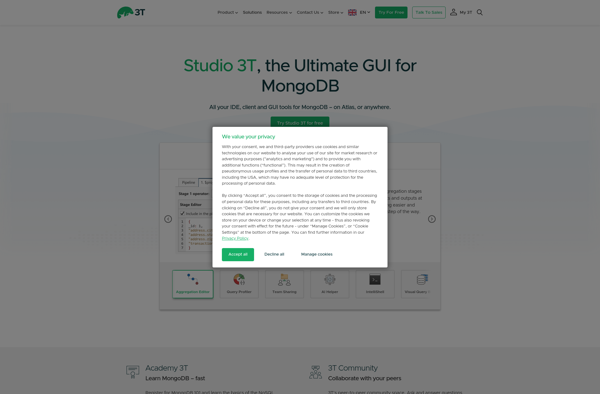
Hackolade
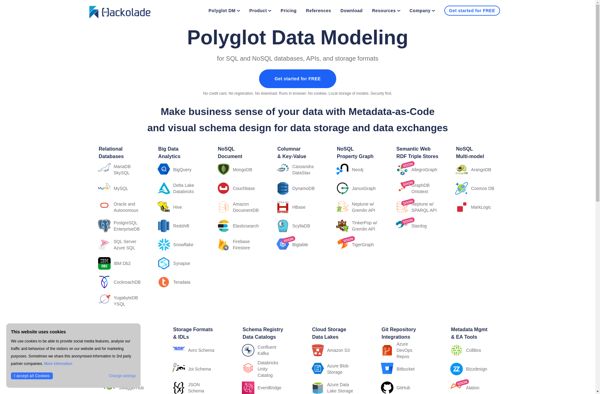
DbSchema
